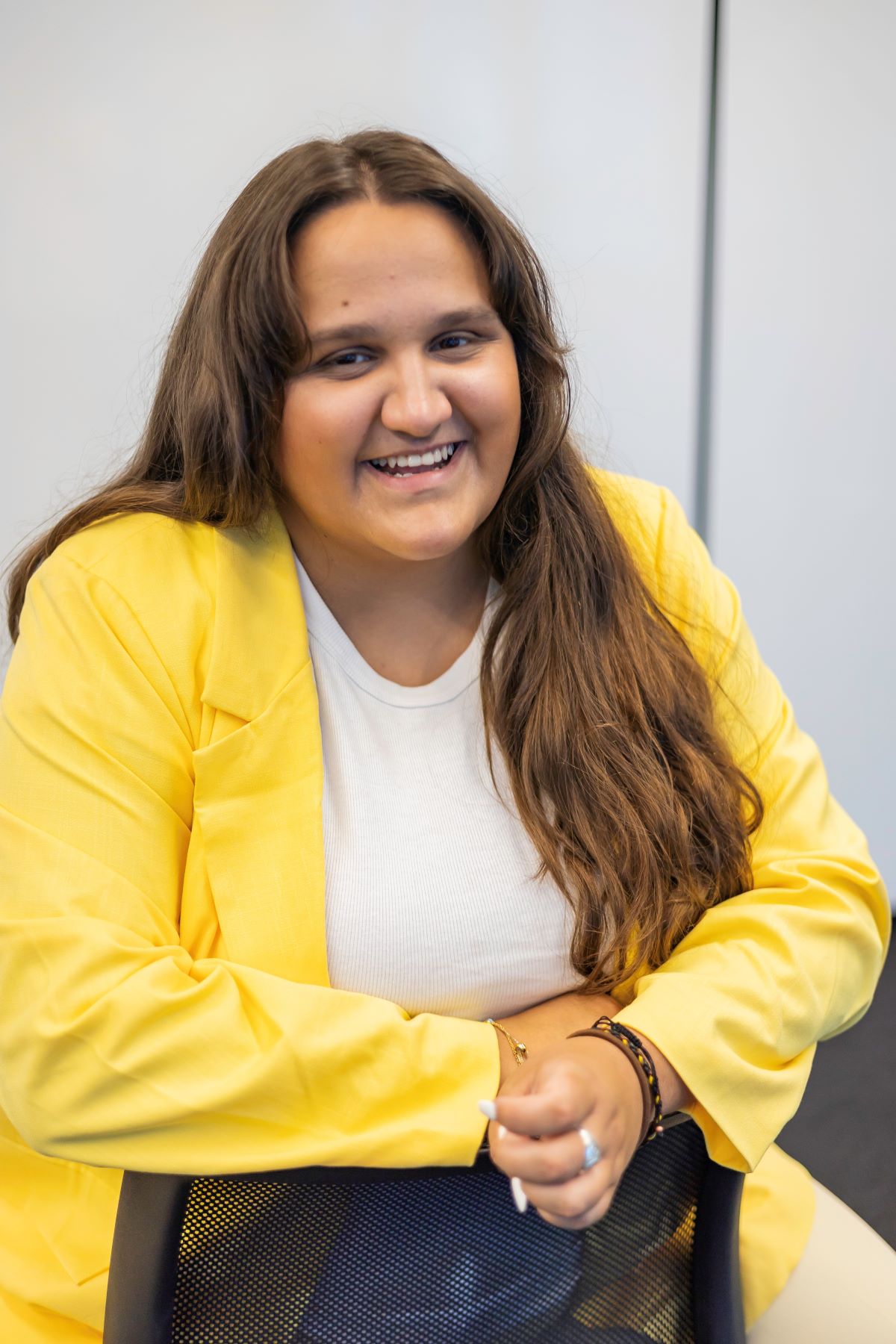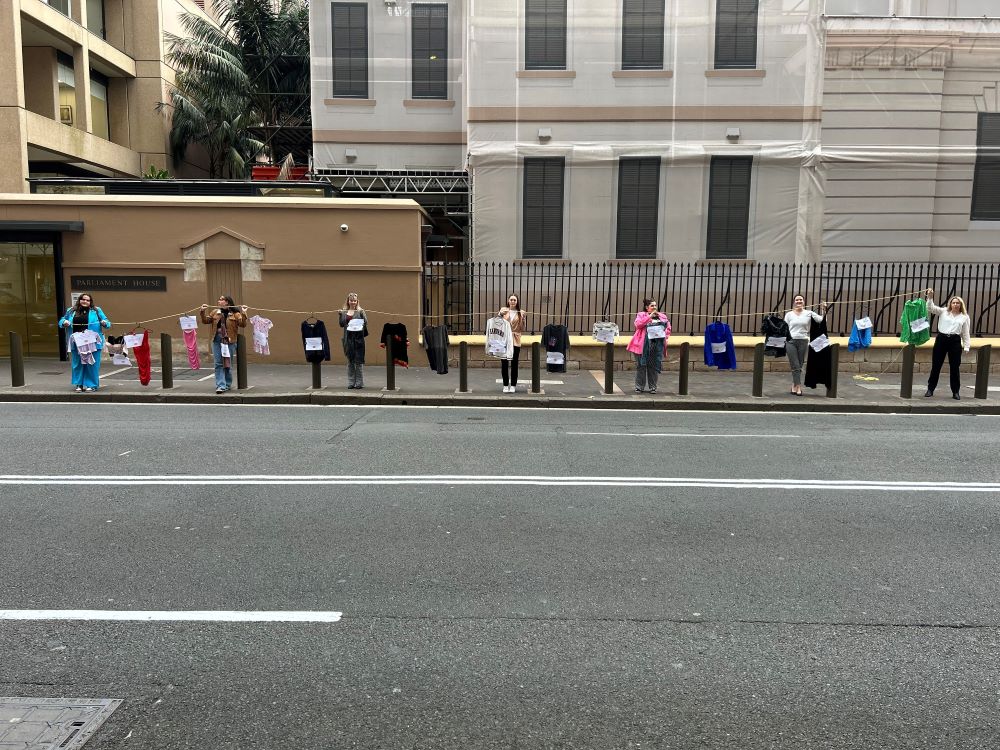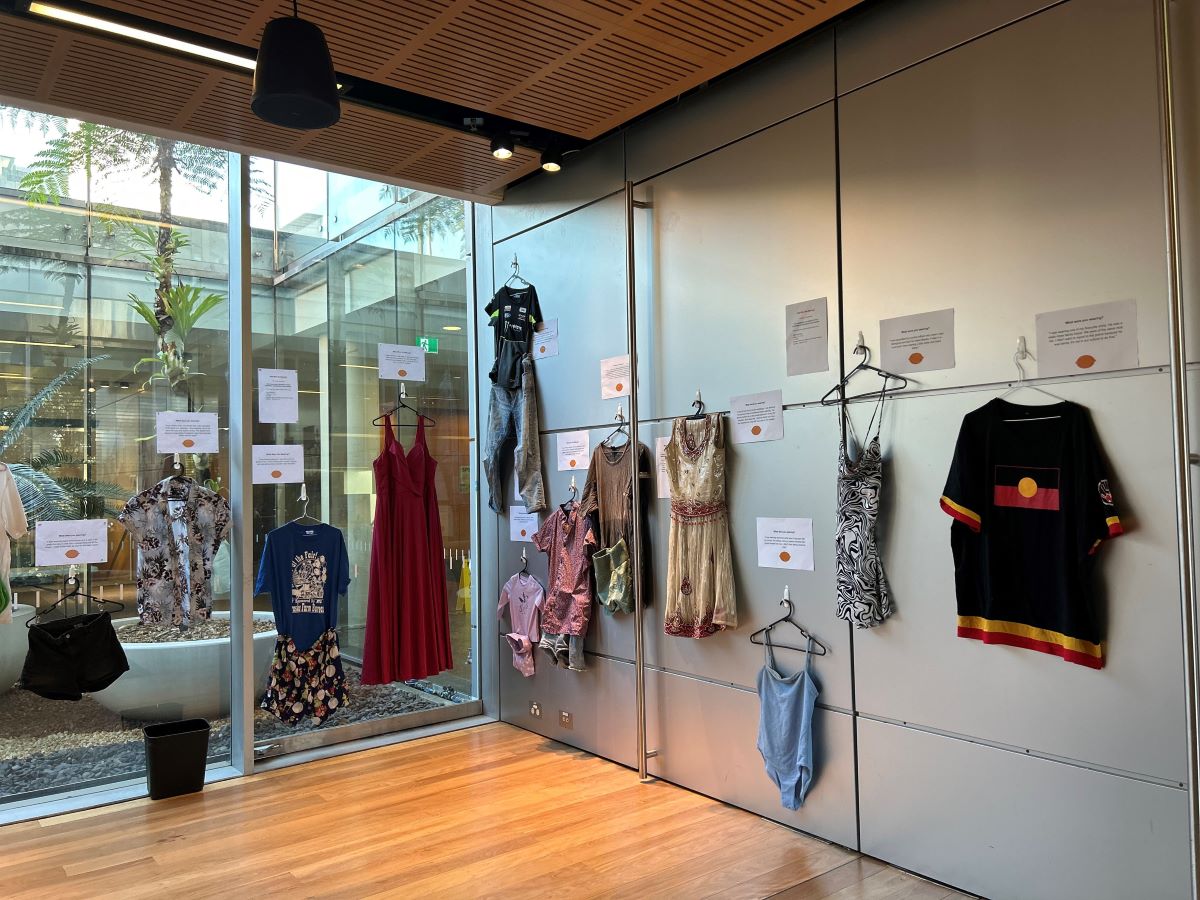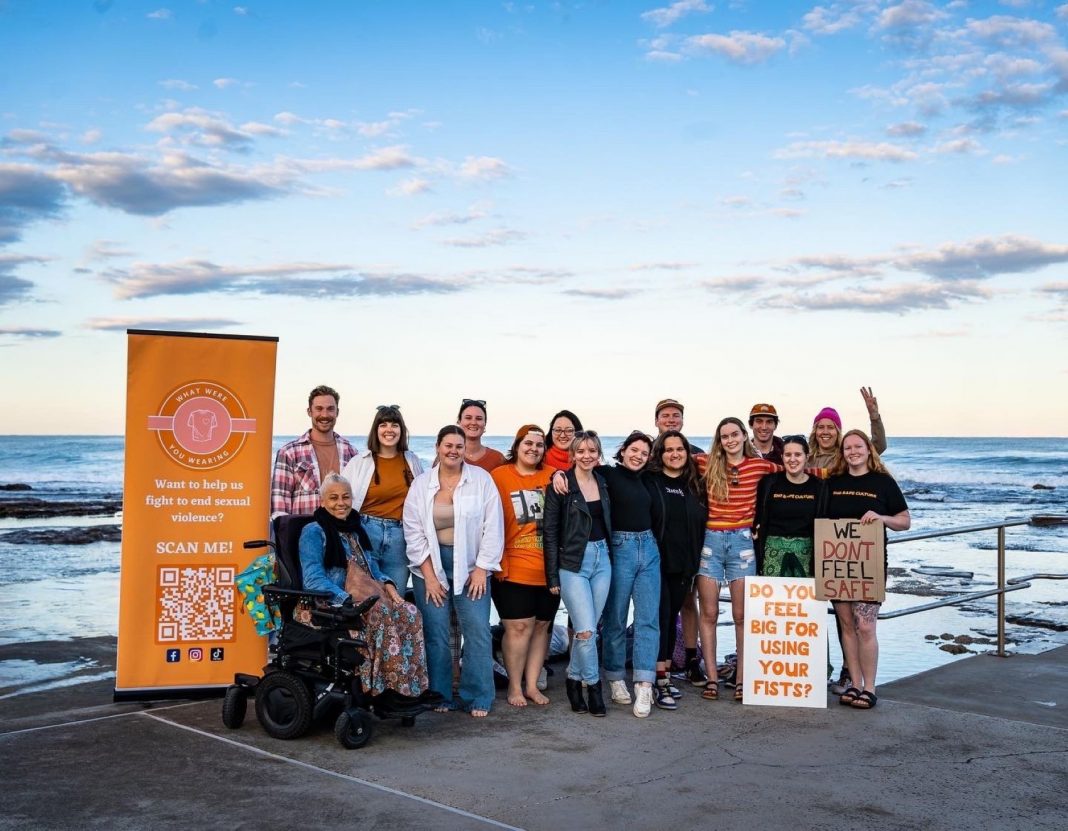Created by survivors, for survivors, What Were You Wearing Australia is on a mission to end sexual violence and help those affected on their healing journey. While mostly based in NSW, the organisation moved their advocacy into the national capital this week, where they met with ACT Attorney-General, Shane Rattenbury.
“I’ve lived in Canberra before and I really loved the culture and I think it’s a really progressive Territory as well, that’s why the next place I wanted to go was Canberra,” says WWYWA founder, Sarah Williams.
WWYWA has launched their Canberra team with ten members ready to start conversations about the culture of sexual violence and ways to prevent it.

This week, NSW parliament debated and passed WWYWA’s proposed initiative, following submission of a petition with over 20,000 signatures calling for drink spiking and sexual awareness training for all bar staff in pubs, clubs and venues across the state.
“Then our bar staff and security know the signs and symptoms, they know what to do if someone is affected by this crime. The reason for coming to ACT is to get that [change] over here,” Ms Williams says.
“The RSA [Responsible Service of Alcohol] in Canberra is different; each state has a different RSA, which is quite annoying that it isn’t changing it for the whole of Australia. We had a meeting with Shane Rattenbury, it went absolutely amazing; they’re looking into conducting more research into drink spiking,” she says.
According to Ms Williams, there has been no new research into the crime in nearly 20 years, and current data, which is drawn from police reports, is inaccurate because many victims don’t report to police.
While in Canberra, Ms Williams and her team met with several MPs, as well as the Canberra Rape Crisis Centre and received positive feedback all round. They have been invited to return in about a month to see what has been done, then get the ball rolling on workshops.
A survivor of child sexual abuse, adult sexual assault, and family and domestic violence, Ms Williams founded WWYWA in 2021. Having experienced a lot of victim blaming, she wanted something to change and for other survivors to not go through the same challenges.
It all started with an exhibition – clothing pinned to the wall – showcasing what the women and young girls were wearing when they were assaulted. Created to dispel the myth that a female’s clothing leads to sexual assault, it didn’t take long until the exhibition went viral.
“It’s not often that you see a sexual assault organisation have a large following; I think that’s a really unusual and weird thing. I think it goes to show how many people are really affected by this crime,” Ms Williams says.
Wanting to do more than an annual exhibition, she founded the not-for-profit to try and fight the unrelenting crime. The organisation offers a range of services incorporating education, awareness and advocacy.
“I don’t think we will ever end it because of the nature of the crime, but the end goal is to have a community service in each state of Australia, where it’s got a law firm, psychology practice, safe space, and sexual assault nurse all in the one centre, so survivors don’t have to go spending 12 to 24 hours trying to find the support that they need.”


The main goal, Ms Williams says, is to let survivors know there are pathways to healing and other methods of justice, such as sharing your story through support groups and social media (without straying into defamation) and completing victim statements; for others, volunteering to help others works.
“Every survivor has a different way of justice, and I don’t think they will know in the moment what that’s going to look like, it will take time during their healing journey.”
Trying multiple methods of justice to see what would work for her, Ms Williams says there are quite a few out there. Healing in a form for her has come through founding the organisation and the work they do to protect and help others.
Here in Canberra, WWYWA is aiming to launch survivor healing groups by the end of this year. The peer support groups happen once a month and allow people to share if they want to, and provide tools and self-care approaches with professional guidance.
“We spoke to Canberra Rape Crisis Centre, and they said there’s no sort of peer support groups that they can refer anyone to in Canberra,” Ms Williams says.
The not-for-profit plans to launch survivor packs in the ACT, delivering a list of resources, teddy bears, journals and self-care items to people’s homes. They have already set up safe spaces at some Canberra festivals, like Groovin the Moo and Spilt Milk, where festivalgoers can come and relax, or report any assault or harassment.
According to Ms Williams, over the past five or so years, people have become more willing to speak about their sexual violence experience, and the exhibition received over 26,000 survivor stories.
“I think the issue is so taboo still when you compare it to domestic violence … It is still not as accepted because there is that victim blaming; even with the affirmative consent laws, people are still very conservative. It is getting more progressive but there is a long way to go.”
Find out more at whatwereyouwearingaus.org
If you or someone you know is impacted by sexual assault, domestic or family violence, you can call or visit the website of:
- 1800RESPECT: 1800 737 732
- Canberra Rape Crisis Centre: 02 6247 2525
- Domestic Violence Crisis Service ACT: 02 6280 0900
- Lifeline: 13 11 14
- In an emergency, call 000
Get all the latest Canberra news, sport, entertainment, lifestyle, competitions and more delivered straight to your inbox with the Canberra Daily Daily Newsletter. Sign up here.



